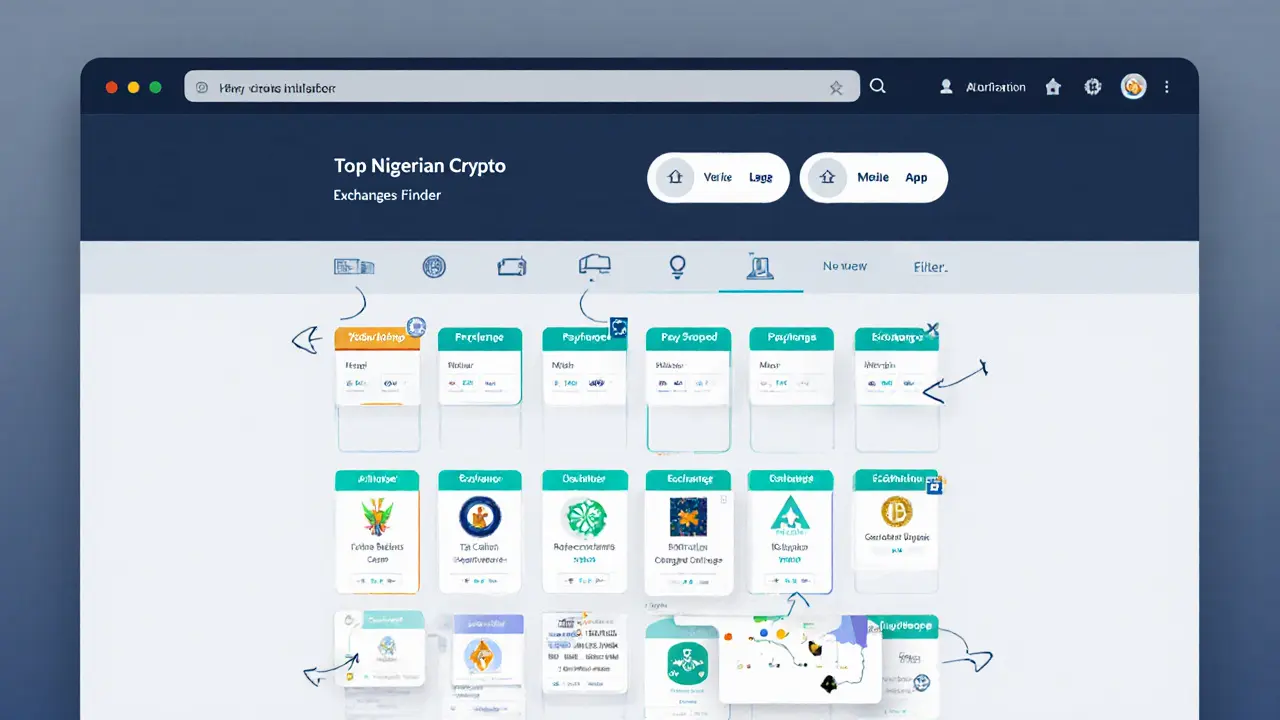Nigerian Crypto Platforms: A Practical Overview
When navigating Nigerian crypto platforms, online services that let Nigerians buy, sell, and trade digital assets. Also known as local crypto exchanges, they connect users to global blockchain markets while handling Naira transactions, you’re essentially dealing with a blend of technology, finance, and local law. Nigerian crypto platforms have surged because many people want to move money quickly across borders, hedge against inflation, or invest in new tech.
Key Building Blocks of the Ecosystem
The first building block is the crypto exchanges, platforms that match buyers and sellers of cryptocurrencies. In Nigeria, exchanges like Binance, Luno, and Quidax act as gateways to global markets. They offer spot trading, futures, and sometimes staking services. The second block is the fiat‑to‑crypto on‑ramps, tools that let users convert Naira into Bitcoin, Ethereum, or other tokens. These on‑ramps are crucial because they bridge the gap between everyday bank accounts and the blockchain. Finally, the regulatory environment, set of rules from the Central Bank of Nigeria and the Securities and Exchange Commission shapes what each platform can offer, from KYC requirements to limits on transaction volumes.
Understanding how these pieces fit together helps you pick the right platform. For example, an exchange that offers low fees but weak KYC may look tempting, yet it could run into compliance trouble if the regulator tightens rules. Likewise, a robust fiat‑to‑crypto on‑ramp with instant Naira deposits speeds up entry into the market, but you still need to verify that the underlying exchange supports the assets you want to trade. The regulatory environment, meanwhile, dictates whether you can use USDT, stablecoins, or even peer‑to‑peer (P2P) markets without running afoul of the law.
When you compare platforms, look at three core attributes: security, fees, and asset variety. Security covers cold storage, two‑factor authentication, and insurance coverage. Fees include deposit/withdrawal costs, trading spreads, and any hidden charges for fiat conversion. Asset variety matters if you plan to explore beyond Bitcoin and Ethereum – some Nigerian platforms list emerging tokens, DeFi projects, or even NFTs. By weighing these factors against the backdrop of current regulations, you can avoid costly missteps and focus on the platforms that match your trading style.
Below you’ll find a curated list of articles that dig deeper into each of these areas. We’ve gathered step‑by‑step guides on buying crypto with fiat, detailed exchange reviews, insights into regulatory updates, and even tips for navigating airdrops. Whether you’re just starting out or you’re looking to sharpen your strategy, the collection gives you practical, up‑to‑date information to help you make informed decisions on Nigerian crypto platforms.
Top Crypto Exchanges for Nigerian Users in 2025 - Complete List & Guide
Discover the most reliable crypto exchanges for Nigerians in 2025, with a detailed comparison, security tips, and step‑by‑step guide to start trading safely.
VIEW MORE
